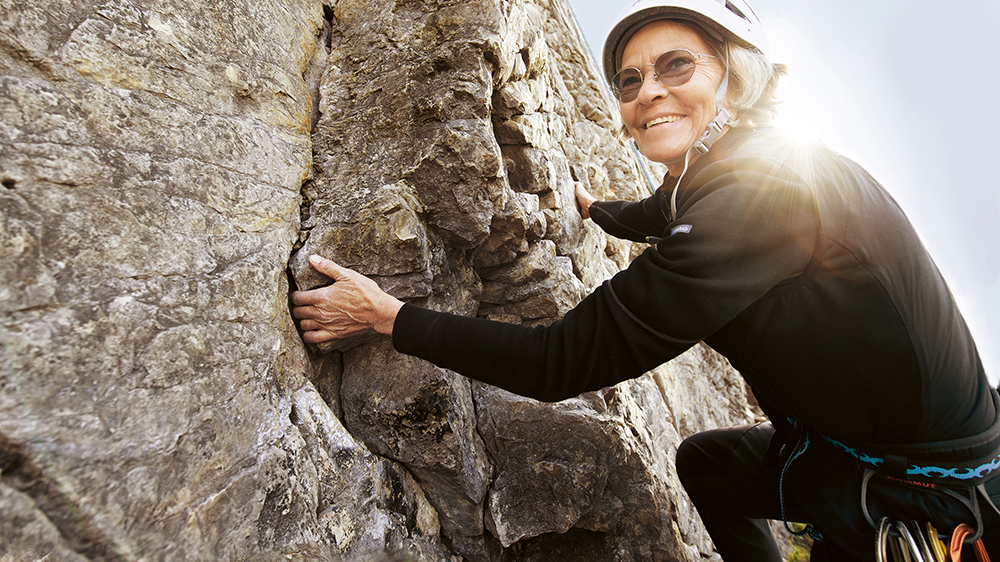Navigation auf uzh.ch
Navigation auf uzh.ch

The passion is palpable when Susi Kriemler talks about her work as an epidemiologist, pediatrician and sports medicine specialist. Kriemler, a trained medic, lives and breathes research and uses her expertise in public health to encourage people, especially children, to adopt healthy lifestyles.
Her role on the Ciao Corona study, investigating the status of infections contracted by Zurich schoolchildren during the pandemic, has been a source of great satisfaction for her: “I consider it a privilege that my team and I have been able to contribute to the pandemic response during this extraordinary situation,” Kriemler says.
The study findings at the end of last year showed, based on antibody levels, that there were hardly any clusters of infections in Swiss schools, even though they were open when many schools worldwide remained closed. But the picture is constantly changing. By April 2021, almost 20 per cent of all children had formed antibodies against the new coronavirus. “Clearly, the work represents a major challenge,” Kriemler says, “but it’s important for us to understand the role of children in the pandemic so that we can take appropriate action.”
Kriemler is in her element when presenting information in public – she has no fear of the media, even if she would normally prefer to avoid the limelight. “I believe it’s part of a researcher’s job to communicate and explain findings to the public.”
She has frequently taken on this role of communicating, for example about exercise programs or high-altitude medicine, which she spent a number of years investigating. Her motivation to help people and her desire to work in the healthcare sector are what led her to study medicine in the first place.
Kriemler grew up in the Appenzell region of Switzerland. She remembers the long walk to school, sometimes barefoot depending on the weather. Perhaps this early walking habit and her love of running contributed to her later decision to specialize in sports medicine.
In her PhD thesis, Kriemler was able to combine her passion for the mountains with her medical expertise. “I have always enjoyed taking on sporting challenges, and I love mountaineering more than anything,” she says. In the 1980s and 1990s, the internist Oswald Oelz was working at the University of Zurich, and Susi Kriemler jumped at the opportunity to write her doctoral thesis with the well-known high-altitude physician.
Together with peers, she published several papers in the field: One of the areas she focused on was how children adapt to high altitudes. Her love of the mountains has remained to this day, and the researcher has reached altitudes of over 7,000 meters several times, in the Himalayas and in the Cordillera Blanca mountain range in Peru.
The feeling of being high in the mountains with rope and crampons Kriemler describes as addictive; the combination of physical exertion and natural beauty as awe-inspiring. In addition there is the adrenalin of taking risks. “I can’t imagine a boring life dominated by safety,” says the researcher, who continues to visit high-alpine regions.
A career in the field of high-altitude medicine was unrealistic, however, due to limited funding opportunities in Switzerland, so Kriemler focused on pediatrics and sports medicine. After postdoc positions abroad and at ETH Zurich, she spent several years doing research at the University of Basel, where she conducted important studies in the area of public health, on topics such as air quality and pulmonary functions, and physical education in schools.
In one significant study, the researcher was able to demonstrate the health benefits of a daily exercise class for primary school pupils: Their fitness and bone strength increased, and obesity reduced. However, the proposed daily sport session was unfortunately not incorporated into curricula nationwide, much to her regret.
After her Basel sojourn, Kriemler returned to the University of Zurich in 2013 as research group leader at the Epidemiology, Biostatistics and Prevention Institute, where she works mainly in the area of physical activity and health in children.
Due to the pandemic, her focus has shifted – for nearly a year, she has been researching the spread of Sars-CoV-2 in schoolchildren as leader of the Ciao Corona study. As part of the study, the prevalence of coronavirus antibodies in approximately 2,500 children and adolescents is measured. The third series of tests is currently underway. “Coronavirus overshadowed everything,” says Kriemler, “but I am glad of the opportunity to work on the project. It fits with my goal of improving public health.”
It’s a goal she has been working towards since the start of her career. She looks back on her academic career with great satisfaction and pride. But she is also open about the fact that it was at times a struggle – she was working in a marginal field, part-time, and had two children to bring up. “But when you’re really passionate about something, you put up with a lot,” she says, “working at night, for instance.” And to provide balance, she could always escape to the mountains. There, too, she proved that she has staying power and never loses sight of the goal.